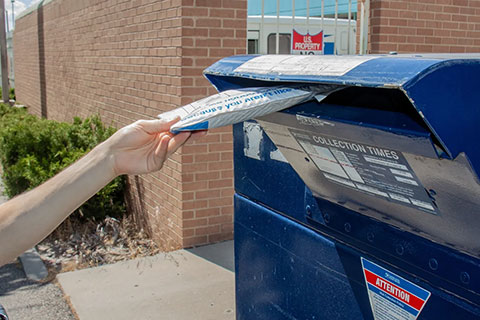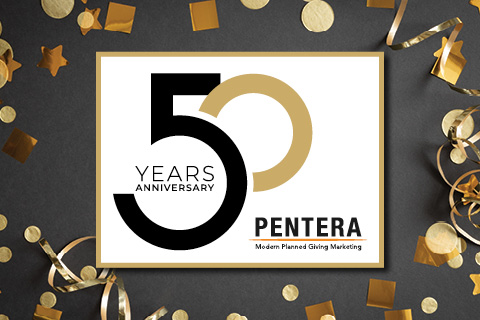The Pentera Blog
Copywriting for Planned Giving Direct Marketing: An Art or Science?
by Claudine A. Donikian, JD, MBA, Vice President, Integrated Marketing
Some would say writing is an art. But is that all it is? Volumes have been written on the strategic use of words in marketing communications, and a lot of research and testing has been done to find out what works and what doesn't in direct marketing. What is compelling? Motivational? Engaging? What increases response? There are so many little rules and best practices that they can be difficult to keep straight. When posing a question in a headline, which is the default? "Do you want to receive income for life?" or "Don't you want to receive income for life?"
Add generational issues to the mix. We know Baby Boomers are coined as a self-involved generation, the "me" generation–whereas the Silent Generation enjoys a sense of belonging, the "we" generation, so to speak. How then does the single most effective word in direct marketing, "you," fit in? Can it be used for the Silent Generation? If so, when? How?
Luckily there are wordsmiths who specialize in the science of direct marketing copywriting. In addition to being naturally persuasive, intuitive types, they are trained in the rules of persuasive copywriting–and Pentera employs several. And for those of you interested in some simple, proven rules, here you go!
• "You" is your secret weapon: "You" is one of the most persuasive words in your direct marketing copywriting. If in doubt, work "you" or "your" into a headline. This trumps "we" and is better than "I," regardless of generation.
• Don't you want to know whether to use "don't" or "do"? Don't use the word "do" if in doubt when posing a question. You want to avoid giving someone the opportunity to say "no" in response to a question, and "do" is more apt to elicit that response.
• Being a "senior" was only cool in high school: Avoid the word "senior" for those 50+ in age. Baby Boomers especially do not think of themselves as "old," don't want to be considered "old," and certainly don't want to be referred to as "old." So calling them "seniors" as they move into their golden years is big no-no.


